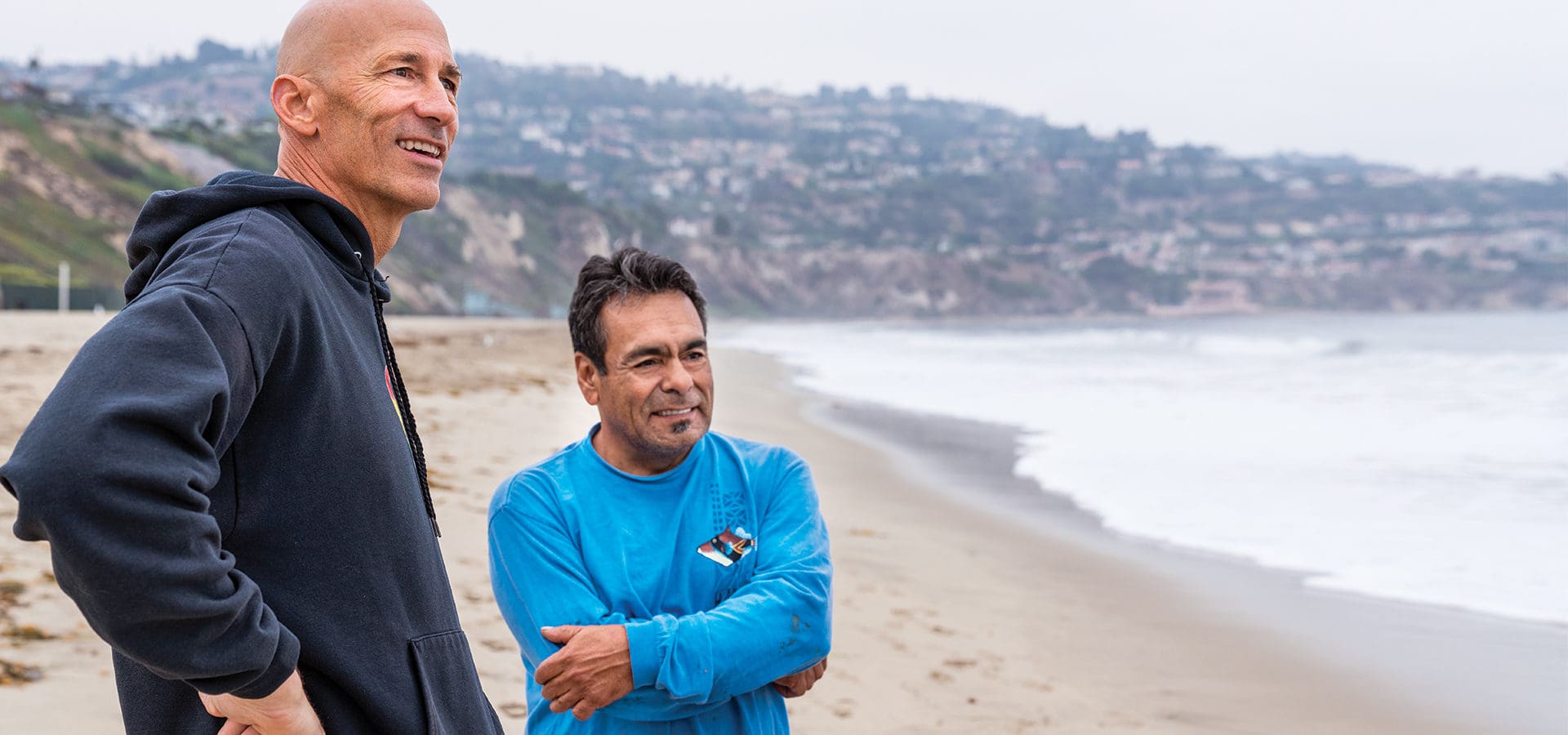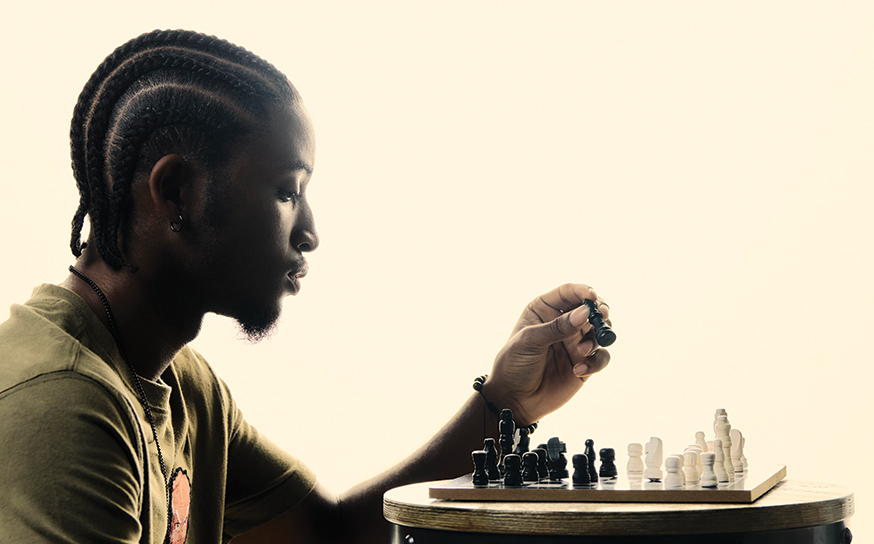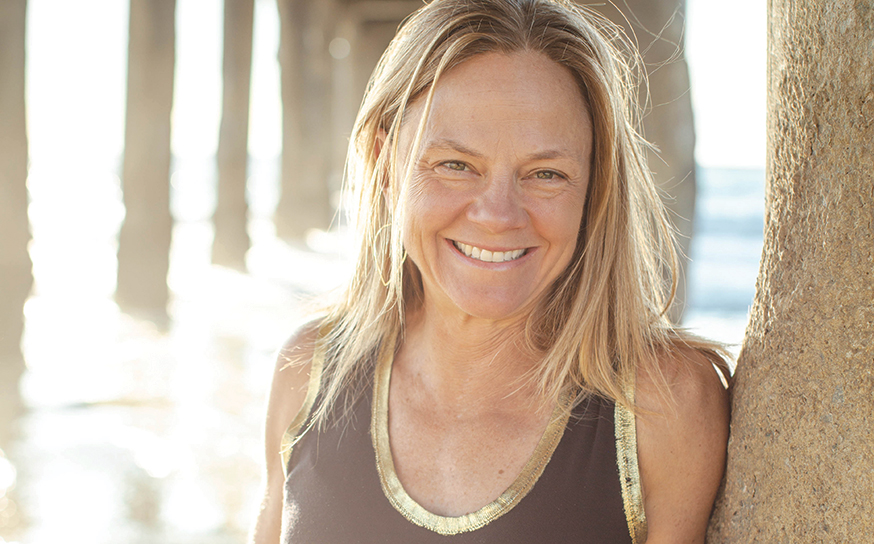In January 2019, Lesli Koontz was where she spent most of her time: an hour from home in her office at Angel Stadium of Anaheim. She rarely minded what many would consider a brutal grind. She would wake up at the crack of dawn, jump on the 405 before the worst of rush hour and then dive into a long day at the office.
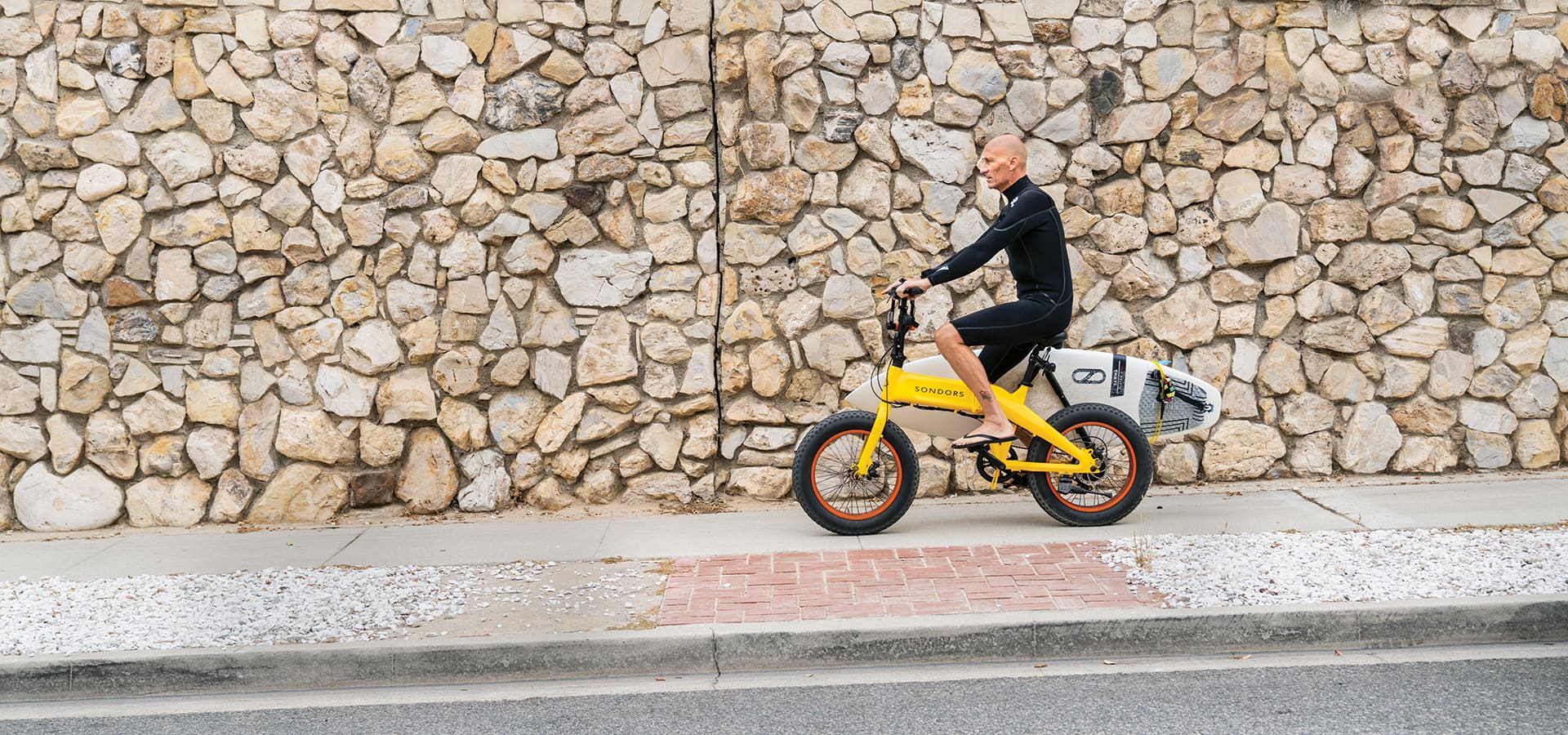
On most days, she would head north again after rush hour. During baseball season, her workdays could stretch to 15 hours. But identifying and building exciting partnerships for the Angels Baseball organization—like the wildly successful campaign for Gungho Online that featured Japanese two-way player Shohei Ohtani—was energizing and creative. She loved the job, her colleagues and the excitement of working for the Angels. It was a dream career.
But one day changed everything. Just before 11 a.m. on a rainy January morning, an old friend—who was near Angel Stadium for a business meeting—texted Lesli to see if she could slip away from her desk for a quick coffee and a chat. But just minutes after the two women sat down together, Lesli’s cell phone rang. It was a neighbor—nothing urgent, she assumed.
So she tucked her phone away, making a mental note to return the call when she was back in her office. A minute later, her phone rang again. And again. When she finally decided she’d better answer, what she heard on the other end was the start of a nightmare.
Her neighbor told her there had been a bad surfing accident at Torrance Beach, just blocks from Lesli’s home in South Redondo. “No one is sure, but it might be Kanon. You need to get to Torrance Memorial right away.”
Kanon, Lesli’s husband, was home when she left for work that morning. He was scheduled to fly to San Francisco for meetings but texted to let her know there had been a flight change and that he planned to do what he always did whenever he could find an extra hour or two: head out for a quick surf.
Lesli panicked. Thankfully, her girlfriend was there to help. With her friend at the wheel, the two headed north from Anaheim, navigating the midday freeway traffic. The 40-mile drive to Torrance was agony.
As they passed Long Beach, her phone rang again. It was the hospital saying they had a “John Doe” that they believed was her husband. Then came the call from the ER doctor: “If we lose him, do you want us to resuscitate?”
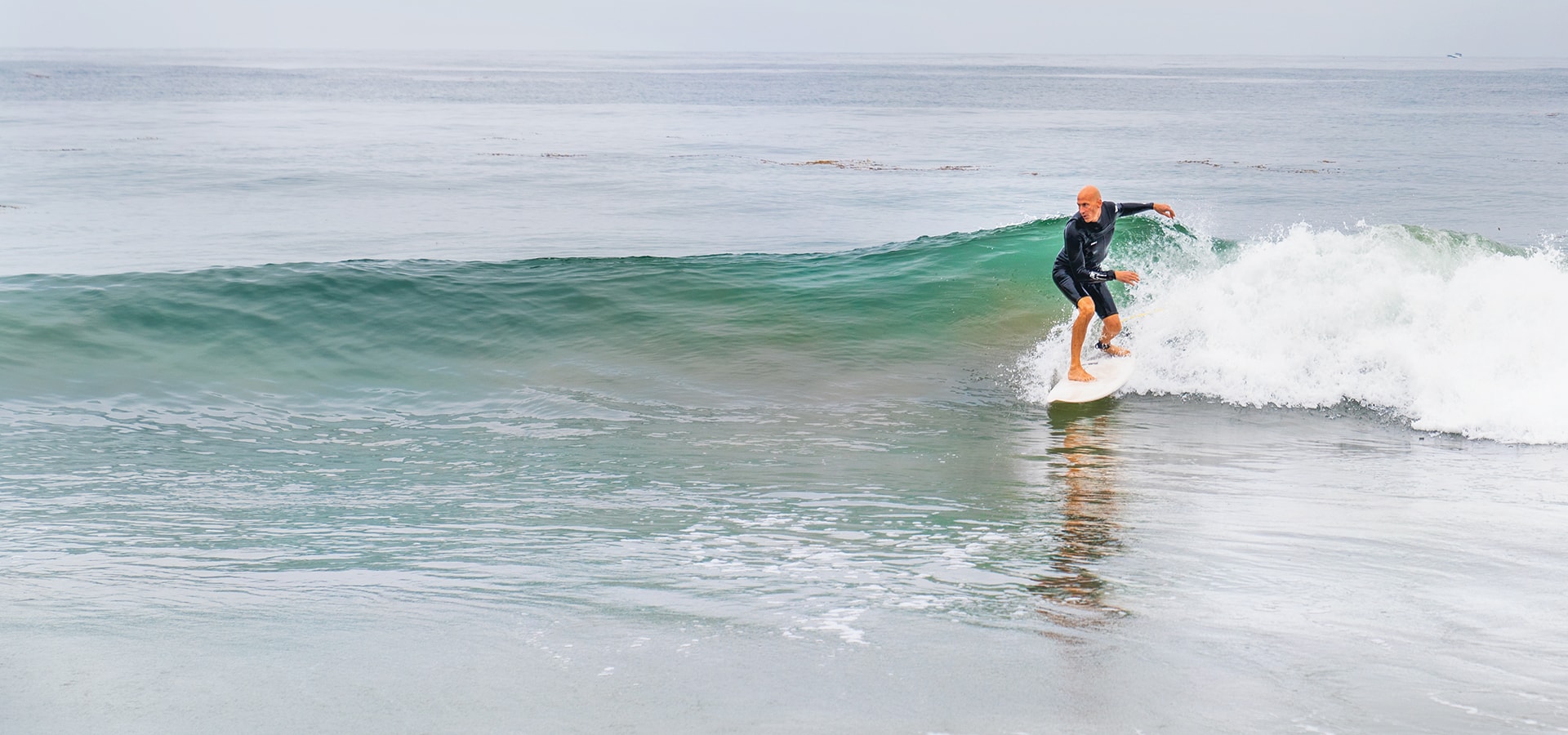
It took days to learn the whole story. It had been a rainy day, and Kanon had headed into the water at Torrance Beach just in front of Perry’s Café. A group of local surfers noticed he was catching some good storm waves, but when they headed over to check it out, they couldn’t see Kanon—just his board floating in the surf. After alerting the lifeguard, they all rushed in to help.
“When we finally met face-to-face, I was overwhelmed. Here was this stranger who literally risked his own life to save mine. There were no words to express how much his actions meant to me—and to my family. He is my local hero.”
Because of the rough surf, it took the lifeguard plus the help of three surfers to get Kanon onto the rescue board and then back to shore where rescue vehicles were waiting. They cut off his wetsuit, pumped two liters of water from his lungs (more than they’d ever seen at a rescue) and rushed him to Torrance Memorial Medical Center, where he was nonresponsive.
The diagnosis: two brain bleeds resulting from the lack of oxygen while he was underwater. The prognosis was grim. At this point, the decision was made to bring their older son home from college, and Kanon’s and Lesli’s families flew in from out of state.
Twenty-four hours later, Kanon was still in the ICU and on a ventilator. He hadn’t moved at all. Distraught, Lesli stayed at his side the entire time, leaving the room only to use the bathroom while friends and family stood watch.
On day two he was taken off the ventilator and began to breathe on his own. Then, as Lesli was rubbing his feet, she felt one foot suddenly go ice cold. With prodding from Lesli and Kanon’s mom, a nurse herself, the doctors discovered that Kanon had developed blood clots in his leg. That came with a new challenge.
During a battle with colon cancer more than a decade earlier, Kanon had gone into cardiac arrest when he’d been injected with the dye used for a CAT scan. Had he remained a “John Doe,” the blockage may not have been discovered. And even if it had, a traditional CAT scan may have killed him. By being at his side and acting as his health care advocate every step of the way, Lesli helped save Kanon’s life.
Just five days after the accident, Kanon was released from the hospital and went home, with his family at his side. Three weeks later he was back at work—remotely—and six months later he was back at the beach … and back on his surfboard.
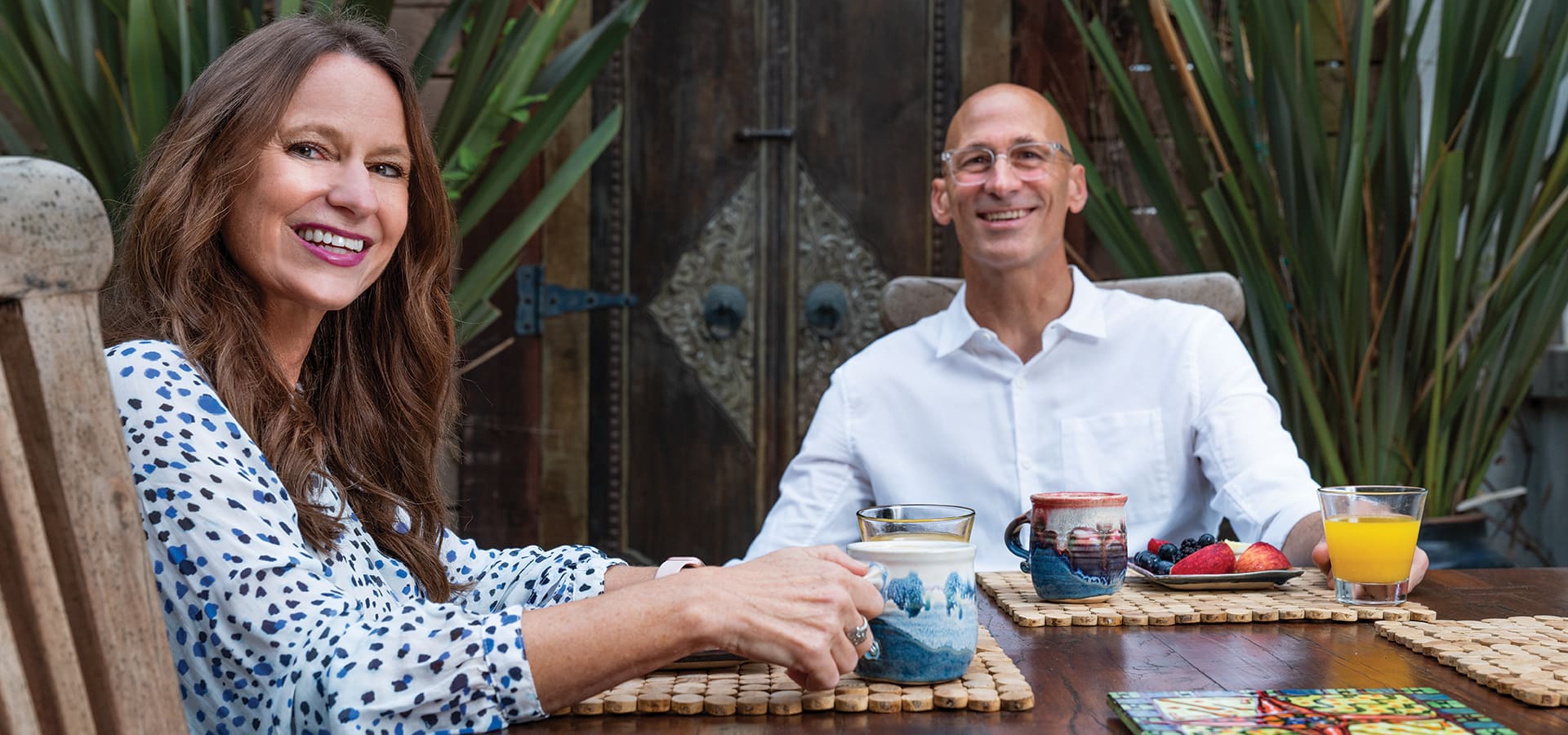
Kanon’s recovery was considered a miracle, and support for him, Lesli and their boys poured in from the most unexpected places. The ER doctors who were amazed by his recovery came to congratulate him. Pastors and ministers from different churches and faiths came to pray over him. Friends, friends of friends and complete strangers brought the family meals. The firefighters who rescued him took up a collection to replace the wetsuit they had cut from his body—and even came by the house for a special visit. And the surfers who identified him—some who had known him by sight but not by name—visited him in the hospital.
For Kanon, connecting again with Joe Salcido—the surfer who swam him to shore that day—was particularly meaningful. “When we finally met face-to-face, I was overwhelmed,” he remembers. “Here was this stranger who literally risked his own life to save mine. There were no words to express how much his actions meant to me—and to my family. He is my local hero.”
It was the actions and strength of the community that made Lesli realize that the place she needed and wanted to be every day was right here, close to her family. She also wanted to be an active participant in the community that stood by her family’s side. That realization became the launching point for Lesli’s decision to make a major career change.
Things that once seemed so important to her suddenly seemed trivial. What mattered most of all was being close to her own family and sharing her love of our community with others—a place that still feels like a small town, where everyday people are willing to take heroic action to come to the rescue of their neighbors. For Lesli and Kanon, it was clear that this sense of community is what makes the South Bay so special.
Last December, 11 months after Kanon’s accident, Lesli joined Vista Sotheby’s in Malaga Cove and began her new career as a Realtor. Though the pandemic slowed her career transition, she is happy to have a new job to love—working from an office just minutes from her front door.
“Life is not guaranteed,” she says. “This is my happy place, and I want to help others find their own happy place. What greater gift is there than that? I’m able to be here for my family, and I’m able to help other families make their dreams come true in this truly special place. This is home. There’s no place I’d rather be.”
Southbay ‘s Annual Spring Style Guide Has the Latest Fashion Trends, Jewelry, Home Goods and Gifts!
Shop local and support our amazing businesses.






